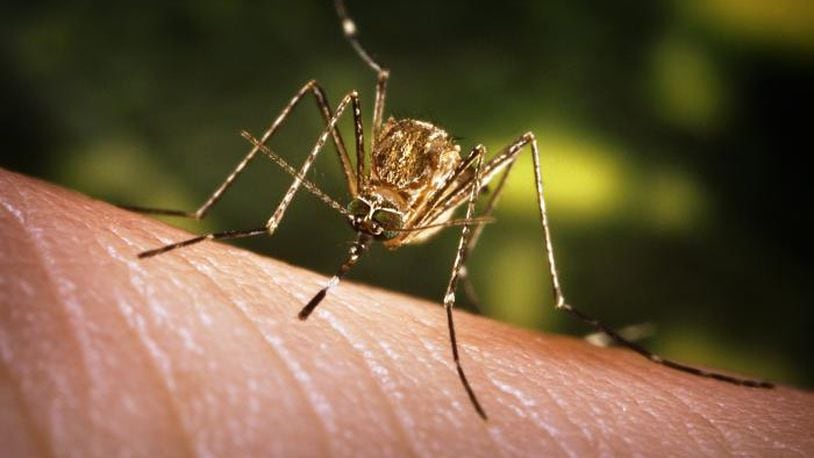Here are five things to know about this year’s cases in Ohio and about the virus:
•2018 OHIO CASES: Samples from mosquitoes this year show positive in several area counties. But officials report only one person with the virus in Ohio, a 71-year-old Lake County man who was hospitalized.
RELATED: Ohio West Nile virus highest since 2012
Other counties with positive sample tests include: Athens, Clermont, Coshocton, Cuyahoga, Delaware, Franklin, Hamilton, Hancock, Licking, Lorain, Lucas, Mahoning, Medina, Portage, Richland, Ross, Scioto, Stark, Summit, Tuscarawas and Wood, officials said.
•HOW YOU GET IT: West Nile virus is a virus most commonly spread by infected mosquitoes. The primary carrier in Ohio is the northern house mosquito. Mosquitoes become infected when they feed on infected birds.
RELATED: Warren County reports first case of West Nile virus this year
Infected mosquitoes can then spread the virus to humans and other animals when they bite.
•WHAT ARE SYMPTOMS? About eight out of 10 infected with West Nile virus do not develop any symptoms, according to the Center for Disease Control. About one in five people who are infected develop a fever with other symptoms such as headache, body aches, joint pains, vomiting, diarrhea, or rash.
•HOW DEADLY IS IT? About one in 150 people who are infected develop a severe illness affecting the central nervous system such as encephalitis (inflammation of the brain) or meningitis (inflammation of the membranes that surround the brain and spinal cord), according to the CDC. About one out of 10 people who develop severe illness affecting the central nervous system die.
RELATED: West Nile detected in Greene County
People over 60 years of age are at greater risk of serious illness with those with certain medical conditions - such as cancer, diabetes, hypertension, kidney disease, and people who have received organ transplants – more susceptible, according to the CDC.
•PROTECTING YOURSELF: Among the precautions health officials say you can take to void West Nile are: eliminating standing pools of water; avoiding shaded areas where mosquitoes may be resting; limiting outdoor activity during evening hours; wearing protective clothing; and using insect repellents.
